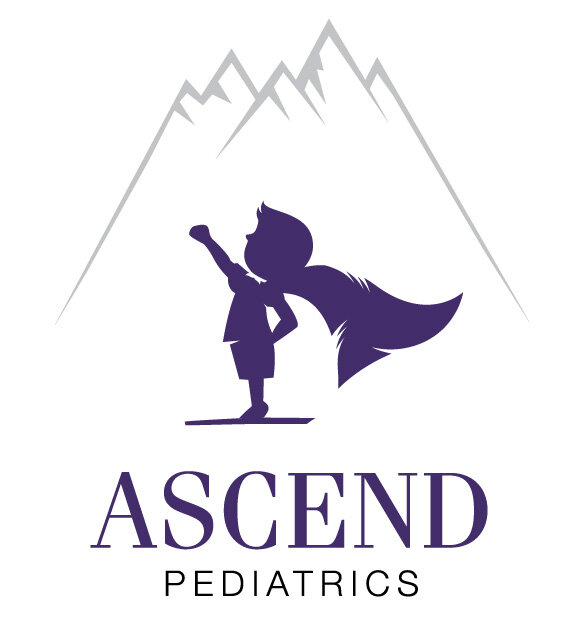
Child Assessments & Development
Ascend Child Assessment
Assessment provides more detail about your child’s development, learning, social, and emotional profile for informed practice. When applicable, diagnosis can assist with accommodations, supports, modifications, placement, resources, funding and government benefits.
Information may be obtained via a review of school records; interviews with teachers and/or parents/guardians; observations of the child in their school environment; and standardized measures focusing on cognitive and academic functioning and/or developmental, social, emotional and/or behavioural functioning.
You will receive a comprehensive written report that provides findings for each measure; an integrative summary; and recommendations for treatment and/or other interventions. The Ascend team is dedicated to helping you and your child continue to increase their growth and development! At Ascend Pediatrics, we also have the ability to carry out individual and group programming that can support treatment goals identified within the assessment.
You can review Ascend’s Standardized Assessment Pricing here!
-
Autism Diagnostic Assessments
Diagnostic assessments provide detailed information to identify whether a child’s behaviour or development may meet criteria for a diagnosis of autism spectrum disorder (ASD) or global developmental delay. We also assess a child's cognitive, social-emotional, and adaptive behaviour.
-
Psycho-Educational Assessment
This type of assessment provides information about a student’s learning style, cognitive strengths and weaknesses, in order to provide individualized recommendations and strategies. Testing varies depending on the individual and their specific needs. It typically includes, but may not be limited to, cognitive (IQ) and academic testing in addition to behavioral, social/emotional, and adaptive functioning measures. A diagnosis may be made as a result of the assessment. A diagnosis can include specific learning disorders, attention and behavior related disabilities such as ADHD, or intellectual disabilities.
-
Gifted Assessments
Gifted assessments are typically required for admission to a gifted program such as Westmount Charter School or the Gifted and Talented Education Program (GATE) as offered through the Calgary Board of Education (CBE). Alberta Education guidelines indicate that the criteria for giftedness consists of an IQ score of 130 (plus or minus 5).
-
Fluency
Diagnosing stuttering disorders in preschool and school-age children. These types of assessments typically include a thorough case history review with the parents, videos of the child in his or her typical speaking environment, and an in-clinic appointment to observe the types of disfluencies, frequency of disfluencies, as well as severity of disfluencies, prior to providing recommendations, strategies, and choosing a specific approach to treat the stuttering disorder.
-
Language
Language can be broken down into 3 key areas: Expressive Language, Receptive Language, and Pragmatic (Social) Language. Expressive language involves how you use language, which includes use of vocabulary, grammar, and sentence structure. Receptive language focuses on how you understand the language of those around you and involves skills such as understanding vocabulary and concept words, understanding sentence structures, and following directions. Pragmatic language involves how you use language to connect socially to those around you and includes areas such as joint attention, making eye contact, using appropriate non-verbal communication, engaging or initiating conversation, and maintaining a conversation.
At Ascend, we are here to help answer the questions of "Is my child's language age-appropriate?" and "How can I support further development?" We use assessments such as the Clinical Evaluation of Language Fundamentals- 5th Edition (CELF-5), CELF-Preschool 3rd Edition (CELF-P3), CELF-P3 Descriptive Pragmatics Profile (DPP), and the Preschool Language Skills- 5th edition (PLS-5) to help answer these questions and guide you into next steps to help foster your child's language development with recommendations and strategies to support communication.
-
Speech Sounds
Speech sound delays and disorders can be classified into 2 areas: Articulation Disorders and Phonological Process Disorders. Articulation disorders involve the inability to produce a certain sound, such as /r/, /s/, /t/, etc. When we work with articulation disorders, we typically start with building awareness of the sound then move to producing the sound in isolation, syllables, words, phrases, and finally into conversational language. Phonological Process Disorders involve a pattern of speech sound errors. Basically, the child is capable of producing the specific sounds in the words, but cannot make the sounds in the correct pattern. Types of phonological processes include cluster reduction (i.e., saying "poon" for "spoon), gliding (i.e., saying "wake" for "lake") and fronting (i.e., saying "tat" for "cat"). SLPs work on these types of speech sound disorders by targeting specific words with the erorred pattern and using positive practice to relearn the pattern.
Our SLPs can assess and determine whether your child has typical speech sound development based on their age or if your child has a delay in speech sound production. We can also use tools such as the Hodson's Assessment of Phonological Patterns- 3rd Edition (HAPP-3), Diagnostic Evaluation of Articulation and Phonology (DEAP) or the Structured Photographic Articulation Test featuring Dudsberry- 3rd Edition (SPATD-3), as well as clinical judgment to identify sounds or sound patterns produced in error and provide recommendations and strategies on how to remediate the identifies speech sound errors.
-
Late Talkers
A "late talker" is a child between the ages of 18 months to 30 months who isn't using much (or any) verbal language but appears to have typically developing skills in other areas of communication (receptive language, gestures (nonverbal communication). Typically, at 12 months old we expect to see children producing their first few words. By 18 months, children should be producing an average of 50 spoken words, and by 2 years of age, we want to see that child producing approximately 200 words.
Although some children do "catch up" on their own, other children rely on additional strategies to increase interaction and verbal language use. Late talker assessments typically include a thorough case history review with the parents, analysis of videos showing the child's use of communication in their everyday activities, and a communication check-list, such as the McArthur Bates Communicative Developmental Inventories (CDI) to see how the child is currently using gestures, sounds, and different word types to communicate. Following the assessment, the SLP is able to provide the family with interaction strategies to increase communication, word types to focus on, and strategies to encourage and foster language.
-
Language & Literacy
Language and Literacy are often intertwined, making it difficult to discern where a child who is struggling to read is having the most difficulty. Language and literacy assessments are meant for students 8 years of age and older and look at receptive and expressive language, reading fluency and comprehension, written expression, phonological awareness and spelling to gather information and give families a full picture view of where their child is having difficulty and how it may be impacting their reading, writing and language skills. We use the CELF-5 and supplementals for standardized testing as well as a variety of formal and informal assessments for reading, spelling and phonological awareness as needed to gain information. From the information gathered personalized recommendations and strategies for home and academic settings are provided to help families advocate for and support their child to create reading and writing success.
-
Sensory Processing & Regulation
Sensory processing is a huge part of our daily tasks. Sensory difficulties are impacting on function, as it makes it difficult for the brain to receive messages. Kids who struggle with sensory processing might have poor attention, be overly active, always tired, or be anxious in loud or crowded environments.
With the completion of a Sensory Profile 2 and clinical observation of the child we are able to complete a though sensory assessment that can help you understand your child’s sensory sensitivities and seeking behaviours. Within the 8 different areas of sensory (tactile, auditory, oral, olfactory/smell, visual, proprioception, vestibular and interoception) in which we can help sort through within the assessment process. This can allow them to be successful in multiple environments and through new tasks.
-
Fine Motor Development
Fine motor skills are the ability to make movements using our hands and fingers. These complex movements help us with holding a pencil, colouring, writing, typing, arts and crafts or dressing with buttons or snaps!
Within this assessment we can look at two specific categories of fine motor: grasping and visual motor integration. The grasping subtest examines how a child holds and manipulates objects with one or both hands. The visual-motor integration subtest examines how a child can use visual perceptual skills to perform eye-hand coordination tasks such as drawing, cutting and copying block designs. -
Visual Motor Integration
Do you notice that your child has been misaligning numbers or letters, difficulties with coordination or appear to be clumsy? Our visual motor integration is the ability for our brain and body to connect and complete tasks.
The screening process of the Beery VMI will help to identify difficulties such as integrating or coordinating tasks that require visual perception, motor coordination and visual-motor integration.
The main reasons for this assessment are to help identify significant difficulties within visual-motor integration and support them in learning recommendations to prompt growth within this area.
-
Gross Motor Development
Is your child not hitting their milestones on time? Do you have questions about your child's development? Do you need a formal assessment to access government or school funding? Our physiotherapists can assess a child's gross motor skills which includes activities such as rolling, crawling, walking, running, jumping and ball skills. These skills are very important for a child's development and are the building blocks for higher level skills including fine motor and speech. A gross motor assessment can include an informal play-based observation and discussion of your child's skills or a formal assessment including standardized scores showing where your child's skills are relative to other children their age.
-
Developmental Coordination Disorder
Is your child clumsy? Do they have a hard time learning new skills? Does your child appear to get frustrated when demands are placed on them? Our physiotherapist will assess the child's movement and coordination to help determine if a diagnosis of Developmental Coordination Disorder (DCD) would be appropriate. The physiotherapist will ask about developmental history, motor milestones, eating, toileting, dressing as well as participation in school and community activities. The assessment includes an informal motor skill observation as well as a formalized assessment with standardized scores. The physiotherapist will complete a written report that can be used to help with a DCD diagnosis in consultation with the child's physician.


